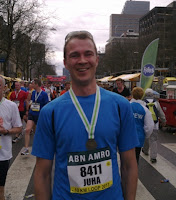One of the students was asked to act as guest blogger here.
Here's what Alex Adriana has written on her own blog, which was copied here:
Baida – getting to know each other
So, the first day here in Baida started off with a groupbuilding activity called Mission Impossible. We had to do all sorts of things within our group but we had limited time. We had to take the funniest group picture, interview 5 people about what identity means to them, find out the price of coca cola, a bus ticket and chocolate in different countries. We had to list 35 countries, sing happy birthday in as many languages as possible, make up a story of a few certain words and we had to make a sixties commercial for young people. After this we had a short break and then we wrote down our fears and expectations of this project. Not really sharing it, but putting it on post-it notes and hang them in the lecture hall. After lunch we did a game, called ‘Facebook’. We had an inner circle who were the models for the outer circle. The outer circle had to change seats every few seconds so everybody took part in drawing the person from the inner circle. It was very funny.
Then things really started. The concept of gender and sexuality was introduced and in pairs we had to answer questions and tell our findings to the group. I had to talk about what the difference is between sex and gender. For the rest of the day we worked on a big puzzle with all sorts of terms that can be divided into different groups. First we made the puzzle in small groups and then we made the puzzle with the whole group, so everybody could see what the level of knowledge of the group is. The exercise was also meant to have a common ground of the words we use and what they mean.
We ended the first day with an aphrodisiac dinner where we presented our national food which is also kind of aphrodisiac. The other countries had many nice things as well. After dinner we went up to the roof with a few people and it was very nice, we socialized more than during the project I think.
In general, I really like being here. The people are very nice and open minded. All of the assignments really helped to get to know each other better and really make us a group."




